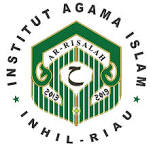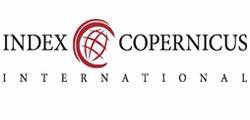Contribution Of Educational Psychology To The Development Of The Islamic Education Curriculum
DOI:
https://doi.org/10.61104/ihsan.v2i1.120Keywords:
Educational Psychology, Islamic Education CurriculumAbstract
Developing an Islamic education curriculum is important in improving the quality of Islamic education institutions. The aim of this research is to analyze and describe the contribution of educational psychology to the development of the Islamic education curriculum. The method in this research uses a library research approach. In this study there was no research location, because all data was taken from journals, books and scientific proceedings. The data collection technique in this research uses documentation, with data analysis techniques, namely data reduction, data presentation, and drawing conclusions. The results of this research can be described as showing that educational psychology has an important role in developing the Islamic education curriculum. The use of educational psychology principles in developing Islamic education curricula can help create an inclusive learning environment and support students' holistic growth. By integrating educational psychology concepts, the Islamic education curriculum can be adapted to current needs, including challenges and changes in the continuously developing educational environment. Educational psychology can also provide insight into how to motivate students and overcome barriers to learning in the context of Islamic education.
References
Abdullah, A. (2019). Aspek Spiritual dalam Kurikulum Pendidikan Islam. Bandung: Remaja Rosdakarya.
Bandura. A. (1986). Social Foundations of Thought and Action: A Social Cognitive Theory. New Jersey : Prentice Hall.
Bandura, A. (1977). Social Learning Theory. New York: General Learning Press.
Booth, A., Papaioannou, D., & Sutton, A. (2012). Systematic Approaches to a Successful Literature Review. Sage Publications.
Esposito, J. L. (2004). The Oxford Dictionary of Islam. New York: Oxford University Press.
Gardner. H. (1983). Frames of Mind: The Theory of Multiple Intelligences. New York : Basic Books.
Hamid, A. T. (2010). Al-Quran: The Guidance for Mankind. Kuala Lumpur: The Other Press.
Johnson, W. (2018). The Hadith: The Sunna of Mohammed. New York: Arcade Publishing.
Kohlberg, L. (1984). The Psychology of Moral Development: The Nature and Validity of Moral Stages. New York: Harper & Row.
Majid, A. (2016). Pengembangan Kurikulum Pendidikan Islam. Yogyakarta: Ar-Ruzz Media.
Piaget. J. (1985). The Equilibration of Cognitive Structures: The Central Problem of Intellectual Development. United States : Univ of Chicago Pr
Santrock, J. W. (2017). Educational Psychology. New York: McGraw-Hill Education.
Skinner. B. F. (1953). Science and Human Behavior. New York : Free Press.
Slavin, R. E. (2017). Educational Psychology: Theory and Practice. Boston: Pearson
Vygotsky L. S. (1978). Mind in Society: The Development of Higher Psychological Processes. United States :Harvard University Press
Woolfolk, A. (2018). Educational Psychology. Boston: Pearson.
Zainal, M. (2015). Pendidikan Islam: Konsep dan Implementasi Kurikulum. Jakarta: Rajawali Press.
Downloads
Published
How to Cite
Issue
Section
License
Copyright (c) 2024 Ardiansyah, Iskandar

This work is licensed under a Creative Commons Attribution-ShareAlike 4.0 International License.











 This work is licensed under a
This work is licensed under a 